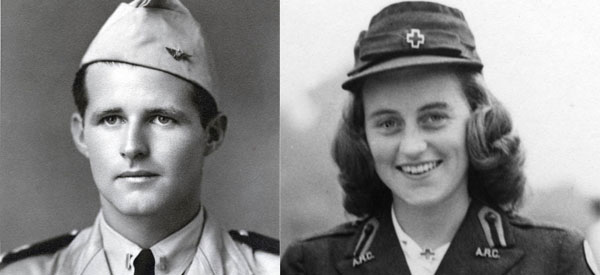
Though John F. Kennedy emerged from World War II as a national hero, he thought of the war years as a dark period for his family. “It turned [us] upside down and sucked all the oxygen out of our smug and comfortable assumptions,” he said.
Joseph P. Kennedy, patriarch of the clan and a fierce isolationist, opposed the war and made several missteps that severely damaged his political career, which once seemed destined to climax in a bid for the White House. Appointed in 1938 as President Franklin Roosevelt’s ambassador to Great Britain, he backed the appeasement policy of Prime Minister Neville Chamberlain, describing Czechoslovakia and other nations threatened by Hitler as “disposable countries,” according to Edward Renehan Jr.’s The Kennedys at War. During the Battle of Britain, he declared that democracy was “finished” in England and perhaps America, too. In a line from a speech that Roosevelt censored, he said, “I should like to ask you all if you know of any dispute or controversy existing in the world which is worth the life of your son?”
That line would haunt Kennedy when the three of his nine children who were of age and able—Joe Jr., Jack, and Kathleen—joined the war effort. Kathleen, the fourth of his nine children, volunteered for the Red Cross in London, in part to be closer to Billy Hartington, a wealthy British aristocrat she’d met while her father was ambassador. She and Hartington married in May 1944, but the groom, a captain in the British Army, was killed in combat three months later.
Jack’s near-death misfortune in the Solomons left him in the hospital for months after back surgery. But the biggest Kennedy tragedy of the war was the death of Joe Kennedy Jr. A navy bomber pilot, he flew at D-Day and twice extended his tour of duty in Europe. In August 1944—days before Billy Hartington died—he volunteered for a secret mission testing an experimental drone plane packed with explosives—a weapon the Allies hoped to use as a guided missile. On the first test flight, the explosives detonated prematurely and the plane exploded. Kennedy’s body was never found.
His son’s death shattered Joe Kennedy and fueled his rage at Roosevelt for entangling America in the war. “For a fellow who didn’t want this war to touch your country or mine,” he wrote a friend in Britain, “I have had a rather bad dose—Joe dead, Billy Hartington dead, my son Jack in the Naval Hospital. I have had brought home to me very personally what I saw for all the mothers and fathers of the world.”





